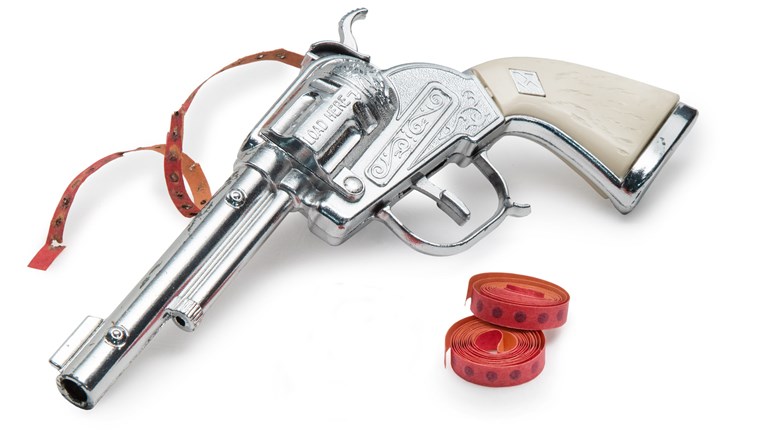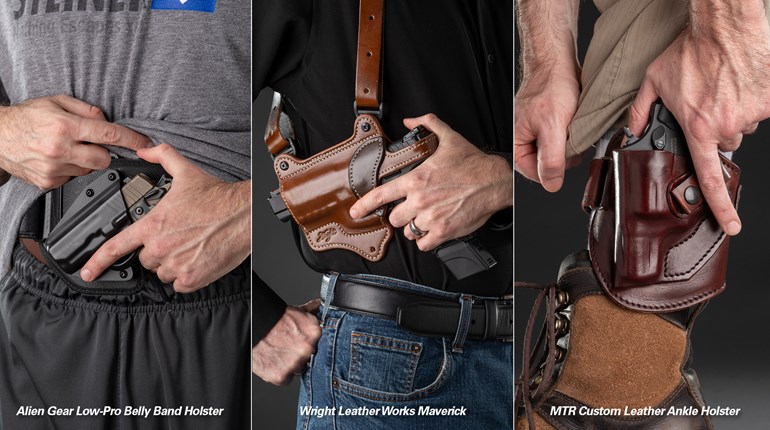
During the U.S. Supreme Court hearing for New York State Rifle & Pistol Association v. Bruen last November—this was the NRA affiliate’s challenge to New York’s very-restrictive “may-issue” concealed-carry licensing scheme—it came up that, in New York City, merely applying for a concealed-carry license costs about $400, according to a brief from the Black Attorneys of Legal Aid (BALA).
This shows how licensing officials who don’t think American citizens should have the right to bear arms use fees, taxes and onerous paperwork requirements that people often must take time off work to satisfy (those working for an hourly wage are particularly hard hit by this), all to price people out of their Second Amendment rights.
More specifically, in New York City, the application fee for a handgun license (a “premises” licenses that allows people to have a handgun in their homes) is $340. For a rifle or shotgun, it is $140. Of course, you need to pay for fingerprinting as well ($88.25), so it actually comes to more than $400 just to apply to legally possess a handgun in your home in NYC.
Along with the legally imposed fees, those who want a gun license have sometimes been pressured to pay bribes to get them. Some even hired “gun expediters” to do this distasteful and illegal work. Some of the bribes we know about, according to the New York Post, included “tickets to Broadway shows and baseball games, an $8,000 Paul Picot watch and cash hidden in magazines.”
If you’re wondering why a law-abiding New Yorker would consider bribes, the reason is that the chance of getting a license is slim. New Yorkers applied for gun licenses at much higher rates in 2020 than previously, as American cities were besieged by riots. As the New York Post reported, “the approval rate [for gun licenses] since March 22 is less than 14 percent… .”
New Jersey—a “may-issue” state that rarely gets out of the way of citizens’ right to bear arms—seems to not have bothered with high fees; in New Jersey, it is $5 for a Firearms ID card, $2 for a handgun purchase permit and $20 for a criminal-history check. You can apply for a carry permit as well, but it is unlikely to be issued. In 2017, according to the New Jersey State Police, there were 662 permits issued to armored-car guards, other armed guards and civilians. Average civilians are likely only a tiny part of that number. When you head out to buy your handgun (within 30 days of receiving your purchase permit), you pay another $16 for the background check (just in case the Firearms ID card criminal-history check missed something) or $15 for purchasing a long gun.
In California, purchasing a firearm requires you to pay $37.19 if buying from a gun dealer; the dealer can charge an additional $10 if this is a transfer from one private party to another. Private-party sales are prohibited except for transfers between spouses, which requires $19 and a report to the California Department of Justice. But with those fees taken into account, you still are not done. To purchase a firearm, you also need a Firearm Safety Certificate (FSC), which bears a $25 application fee and requires you successfully complete a test. At least you get two tries on the test before you must start over!
But wait, there’s more! Now you have a gun, but you need ammunition. You now must pay $1 for a background check, each time you buy ammunition. You had to have that FSC to buy a gun, and a background check when you bought the gun. So why check again when you buy ammunition? If, after the background checks for the FSC and the gun purchase, you were disqualified from gun ownership (violent-crime conviction, indictment, involuntary commitment to a mental hospital), why did the police not take your gun? You might start to wonder if this is just harassment.
As for concealed-carry licenses, the application fee for the Los Angeles County Sheriff’s Department is $30, and another $120 if issued. Like in New York City, there is often graft and corruption involved in the permit process. Some years back, Orange County Sheriff Michael S. Carona was sentenced to five-and-a-half years in prison for crimes including providing “badges and concealed weapons licenses to campaign contributors,” as reported in the Los Angeles Times. This is apparently not unique to Orange County. Santa Clara County indicted a sheriff’s department captain and others for “allegedly brokering a pay-for-play scheme in which campaign donations were exchanged for concealed-carry weapons permits,” per a news article in The Mercury News. “The sheriff herself avoided indictment,” they noted, but “prosecutors said … their corruption probe is far from over.”
I do not have space to list every fee and other burden associated with the way that many states and local governments limit citizens’ right to keep and bear arms, but consider this: All these charges, which are supposedly to protect public safety, are paid by individuals who merely want to exercise their constitutional right. Imagine if any other enumerated item in the U.S. Bill of Rights was subject to this sort of spending. Want to start a church? Give us $500 for a background check on the pastor, and then $500 to open the church. Then $1 for each attendee per week. You want to lead a demonstration requesting lower taxes at the statehouse? Pay a $500 bond just in case the rally gets out of hand. (Perhaps I should stop there before I give elected officials any more ideas.)
The U.S. Bill of Rights is not a “pay-for-play” scheme for governments. It shouldn’t be treated like it is.
Clayton E. Cramer teaches history at a college in Idaho that prefers anonymity.


































